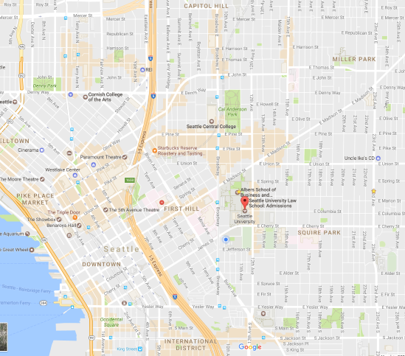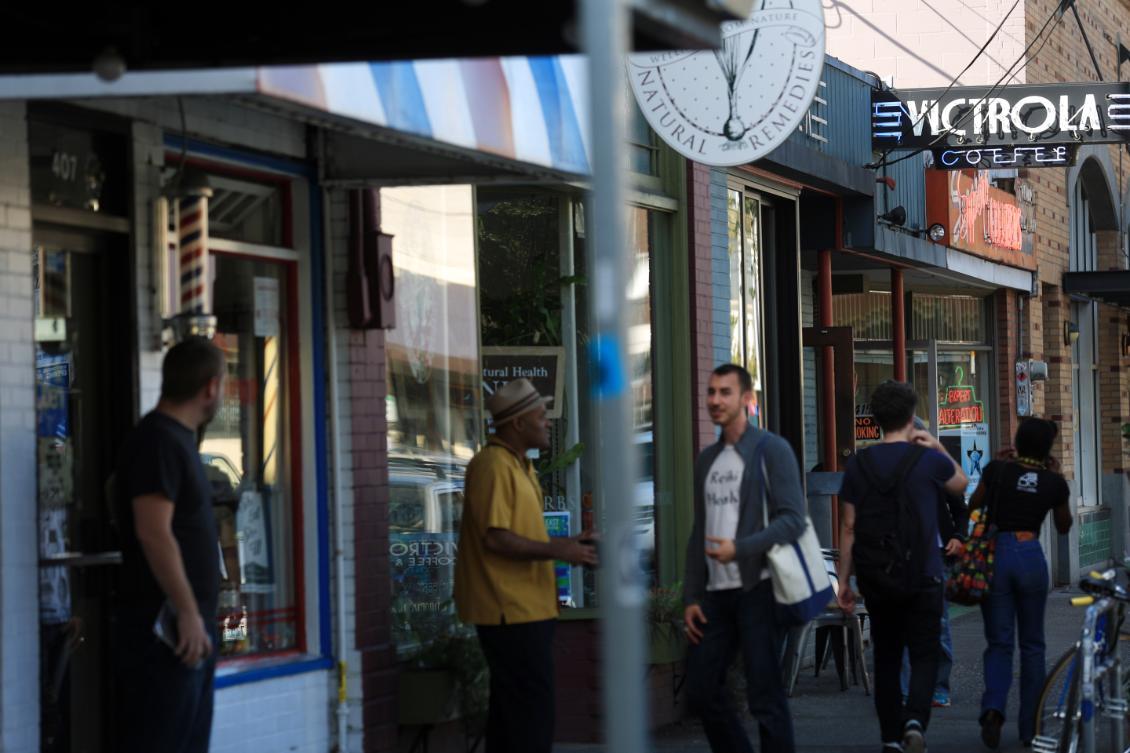
Searching for Housing in Seattle
Neighborhood Rates
Below are average rates for different neighborhood areas around Seattle. We encourage you to use a site like Zillow for the most up-to-date rates.
Housing & Residence Life does not endorse any landlord, management company, or individual who lists with the Places4Students. Instead, we provide a venue for such listings through a landlord registration program, and a location for the University community to seek out available off-campus housing in the Seattle area.
Neither Seattle University nor Housing & Residence Life guarantees in any manner the service or quality of service offered by listed landlord, management companies, or individuals. Students, parents, and other members of the University and Seattle community are under no obligation to utilize the Off-Campus Housing services or to rent from companies or individuals listed with the Housing & Residence Life Office.
-
Capitol Hill
-
- Studio: $1100 – 2700; 240 – 650 sq ft.
- 1 Bed & 1 Bath: $1,495 - $2,290; 500 - 515 sq ft.
- 2 Bed & 2 Bath: $2,395 - $3,728; 880 sq ft. - 1,110 sq. ft.
-
Central District
-
- Studio: around $1,275
- 1 Bed & 1 Bath: $1,550 - $1,650
- 2 Bed & 2 Bath: around $3,350; around 1,350 sq ft.
-
First Hill
-
- Studio: $1,405 - $2,290; around 533 sq ft.
- 1 Bed & 1 Bath: $1,585 - $3250; 650 - 1,000 sq ft.
- 2 Bed & 2 Bath: $2,195 - $4,467; 750 - 1,162 sq ft.
-
Cherry HIll
-
- 1 Studio – around $2,220
- 1 Bed & Bath – around $2,020; 565 – 674 sq ft
-
Squire Park Minor
-
- Studio: $1,275 – $1,325; around 300 - 500 sq ft.
- 1 Bed & 1 Bath: $1,680 - $2,295; 515 - 745 sq ft.
- 2 Bed & 2 Bath: around $4,380; around $1,585 sq ft.
-
International District
-
- Studio: $1,095 – $1,535; 250 – 355 sq ft.
- 1 Bed & 1 Bath: $1,192 – $2,100; 298 - 694 sq ft.
- 2 Bed & 2 Bath: $1,891 - $2,980; 938 - 1,061 sq ft.
Make Sure You...
-
Keep In Mind Your Timeline
-
- There is not a clear time of when to apply for housing to guarantee it for the academic year
- Many spaces will become available after the academic year is over so students might be searching from afar if they are not in Seattle over the summer
- Leases vary in when they start
- They can really be starting in any month. Many are June – June or September – September
- Apartments are often listed as available around the 10th of the month (to give 20 days notice to be out the following month)
- Looking around the 8th-15th of the month is helpful
- New apartment developments will be able to take applications earlier
- Existing apartments/houses are a little harder to anticipate vacancies
-
Give Yourself Plenty of Time
-
- Application timeline & lease dates can vary
- Different requirements for credit & rental history, income verification, co-signers
- Each apartment/house might have slightly different nuances with requirements and what they offer, so it takes time to go through that information
- For each potential location, it takes time to submit an application, do a tour/interview with a landlord, review contracts…
- Spaces go quickly so it is encouraged to act ASAP
-
Are Ready To View Apartments
-
When you are viewing a space, it is like you are interviewing with the landlord/property manager – treat it as such:
- Dress up a bit, put your best foot forward
- Consider having a “housing resume”
- Prepare questions to ask
- Be strategic when visiting a space with your group:
- Consider “roles” for your group
- Consider taking pictures
- Think about who is charismatic
-
Have Questions To Ask The Landlord
-
Here are some questions to consider asking:
- Rent: How much; when it is due; move in date?
- Deposit: How much; how will it be used; how and when is it refunded?
- Damages: Who pays for breakage or other damages over and above normal wear and tear – individuals or all occupants?
- Subletting: Is it permitted; what is the procedure?
- Roommates: Should all roommates sign the lease; are roommates responsible for only a portion of the rent; If someone moves out must the remaining roommates make up the difference?
- Alterations: May the unit be altered, such as painted; can you hang pictures on the wall (and how)?
Affordable Housing Search
Below are different affordable housing search options:
-
AptFinder
-
- Aptfinder.org is a non-profit website formed to connect low income households with affordable apartment communities throughout t Washington State. Listings are voluntarily advertised by owners and managers of rental apartments for low-income households whose annual income is below 80% of area median income. Aptfinder.org includes both subsidized and unsubsidized apartments.
https://www.seattle.gov/housing/renters/find-housing#affordablehousingsearch
Holding Deposits
If you apply for a unit, a landlord may charge you a deposit to hold the unit while screening your application and/or as security that you will move in once you've been offered a rental agreement. Holding deposits require a written receipt that clearly describe the terms. A landlord cannot keep a holding deposit if you fail the application screening. However, if you change your mind about renting the unit, you will likely forfeit the holding deposit.
https://app.leg.wa.gov/RCW/default.aspx?cite=59.18.253 – Washington Law for Deposits
https://www.seattle.gov/rentinginseattle/renters/are-you-ready-to-rent/holding-deposits
Rental Agreements
A rental agreement, or lease, is a legal contract that defines the terms of your rental, including the amount of rent, when rent is due, deposits and fees, damage policies, parking, maintenance and more.
To avoid problems, make sure you understand the agreement completely before you sign it, and inspect the rental unit for damage before you move in. Talk over everything with your potential landlord. Don't be afraid to ask questions.
-
Avoid Scams
-
SU students should be wary of housing scams. Most housing scams involve sending cash or wiring funds via Western Union, MoneyGram, money order, cashier's check or through some kind of “guarantee.” If the landlord or apartment manager refuses to meet face to face before asking you for a payment, that’s a sign that something is suspicious. Please use caution.
The following practices can help you avoid being scammed:
- Never wire funds via Western Union, MoneyGram or other wire service
- Never give out personal financial information (bank account number, credit card number, eBay/PayPal account information, etc.)
- Avoid deals involving shipping or escrow services
- Don't rent long-term housing without seeing it in person
- Don't submit to credit or background checks until you have met the landlord or agent in person
-
Security Deposit-Check List
-
- You cannot be required to pay a security deposit if the landlord does not provide you with a move-in checklist when you sign a rental agreement and move into your new home. The checklist needs to be signed and dated by both you and the landlord.
- The checklist should describe in detail the condition of the rental unit, including but not limited to, walls, floors, carpets, drapes, furniture, appliances, countertops, paint, tile, etc.
- Examine your new home carefully to make sure the checklist is accurate. Let the landlord know immediately if something is not noted on the checklist. The checklist is what the landlord will use to determine if you are responsible for any damage when you move out. Make sure it's accurate!
https://www.seattle.gov/rentinginseattle/renters/moving-in/security-deposit-check-list

